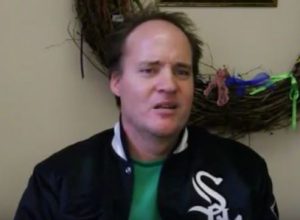Mood, Medication and Frontal Lobe Functioning after Severe TBI
Focus on Frontal Lobe Functioning after Severe TBI
Kevin Part Nine
Mood After Severe TBI

Kevin lost some of his frontal lobe functioning after TBI. His mood was also affected. He was placed on three different medications to deal with complications of his severe TBI.
It was hard to assess Kevin’s mood and emotions. We see later that frontal lobe functioning after severe TBI was diminished too. This is particularly difficult because of his problems with insight. He said he has problems with people who are critical of others. He also said he is still kind of in denial about his brain injury, thinking it was smaller than it was. “There are people who are worse than me with brain injuries,” he said.
Kevin was on the medications Effexor, Neurontin, and Depakote. He said he didn’t feel like he needed medications. We see again and again that Kevin wanted to live as independently as possible, but his brain injury didn’t always make that easy. He did admit to feeling irritable sometimes, like when he doesn’t get enough sleep or when there are too many distractions.
Frontal Lobe Functioning After Severe TBI
I always try to address frontal lobe functioning with each survivor. Although Kevin said he does not feel absent minded, he does have trouble making decisions like when he’s shopping. He also said sometimes he will interrupt people in conversation. This bothers him.
Insight is one of the most serious deficits of brain injury. Lack of insight is why we prefer to have collateral sources of information. Kevin seems to underplay the severity of his injury at times. He felt that his brain injury was small and he is now he’s back to normal. In fact, we would classify Kevin’s brain injury as severe, since he was in a coma for 12 to 14 days and doesn’t remember the month after his accident. His outcome would have to be classified as severe as he has lost his family, livelihood and his capacity to live independently. One of the reasons he has lost those things is the frontal lobe damage to his insight. See our next post about staying positive despite complications of brain injury.